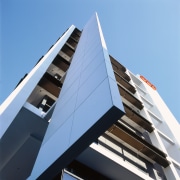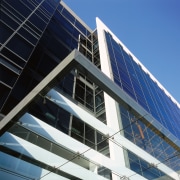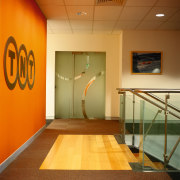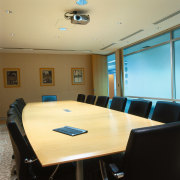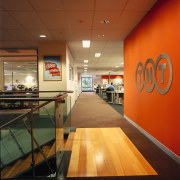Branded
The essential elements of a company's logo have been distilled into recurring motifs throughout the design of its head office

At its most fundamental, effective architectural design embodies a message which is why a company's head office can often speak volumes about how it operates. Everything from the layout of the workstations to the graphics on the walls, cumulatively describes the company's function.
When express distribution company TNT Australia united two offices into one headquarters, it was an opportunity to create a showpiece for the organisation, says managing director Roger Corcoran.
"Our previous premises no longer reflected the global status of our company. The floors were too small and you had to scale the building to find someone. It certainly wasn't an ideal working environment."
Architectural firm Rice Daubney designed both the Metrolink building in which TNT is now situated and the company's distinctive interior.
"In the new building all staff were together for the first time, so there was a strong emphasis on identity design," says architect Steven Shaw.
As the company requires open-plan interior spaces, where staff can enjoy clear sight lines across floors, the exterior features large expanses of glass.

A flush curtain wall of glass on the south side of the building enables panoramic views of Sydney's Botany Bay. It is here that the main entrance is situated.
On the building's north-facing side, windows are set back into steel framing in order to shade the interior from the sun.
At the northwestern end, a projecting blade frames a section of the building's facade. This visual feature also shades the plant room governing air conditioning, lighting and other building systems.
"These environmentally sustainable design principles can be incorporated into a building's fundamental structure, without recourse to expensive, assisted systems," says Shaw.
A solid concrete column presents a controlled vertical element where the TNT logo is located. Its bright orange colour and three connecting circles form the basis for the entire look and feel of the interior. It begins in the breezeway, where orange colour-back glass denotes the location of the TNT offices.
Inside the reception area, chairs are arranged in a semi-circle on carpet with orange strands woven into an arched pattern. A circular cutout in the ceiling projects a cone of light.
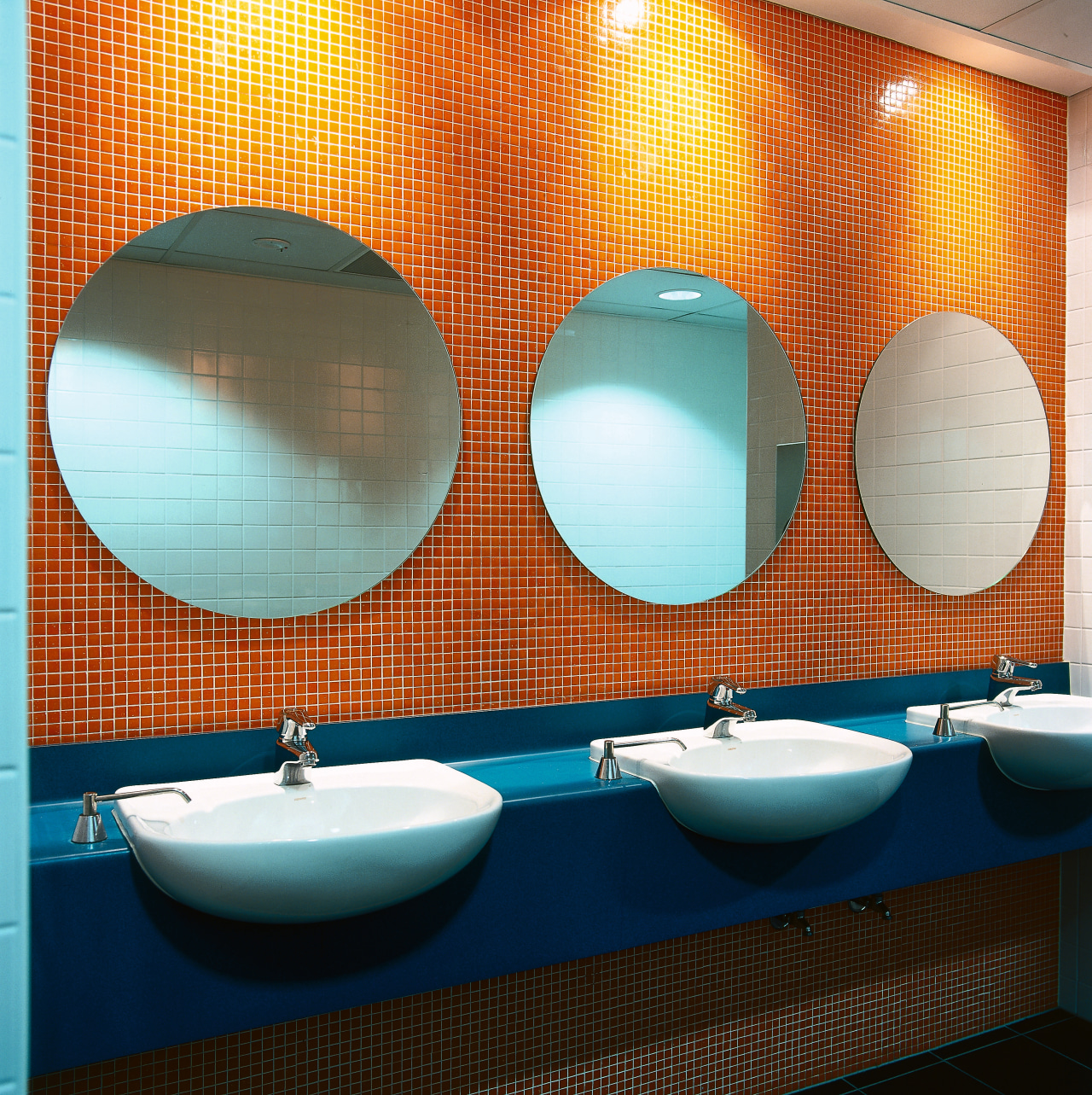
The reception desk is made of light, back-lit translucent glass. Behind the desk there is a TNT sign on frosted glass and an open steel and glass staircase leading up to the executive suite. At the base of the stairs is a Japanese rock garden with pebbles that can be raked into patterns.
That these first two floors are the public face of the building is acknowledged in small, luxurious detailing. These include timber boarding at the top of the stairs and orange swirls cut into the glass doors.
In the expansive workstation areas, the orange accent colour is used in limited yet effective ways.
Each desk has a set of three drawers, the lower two are grey and the top drawer is bright orange. Frosted glass outside the boardroom has small circles of clear glass to enable staff to peep in to see if the room is occupied. Bathrooms on every floor have bright orange mosaic walls, round mirrors and curved basins. The floor of the staff cafeteria has a circular pattern of orange and yellow.
"Subtle branding is apparent in the use of different materials and applications throughout the office design. It is constant and everywhere, yet it doesn't overwhelm the interior," says Shaw.
Credit list
Architect
TNT fitout
Civil engineer
Landscaping
Facade
Window joinery
Columns
Tiling
Paints
Office chairs
Kitchen equipment
Other
Base building
Construction company
Mechanical and electrical engineer
Fire consultant
Awning glazing
Louvres and screens
Flooring
Wallcovering
Workstations
Reception furniture
Bathrooms
Story by: Trendsideas
Home kitchen bathroom commercial design
